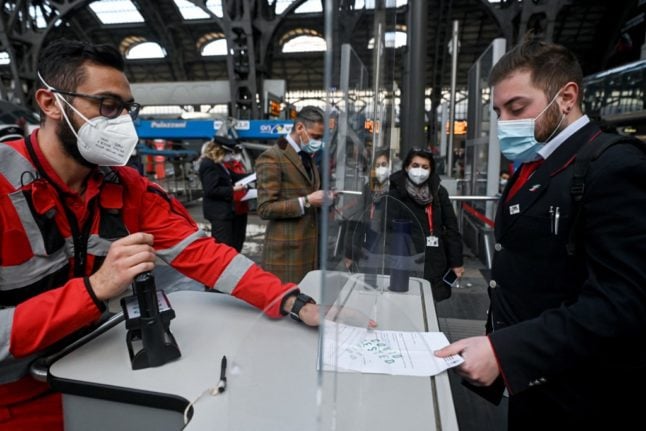Since March 2020 most travel from the USA to Italy has been impossible. But that could soon change, as Italian authorities are considering how and when to allow non-essential travel..
So far, it looks likely that visitors who have been vaccinated will be allowed to travel to Italy using a “health pass”, including from non-EU countries.
The European Commission this week suggested opening the external European borders to vaccinated non-EU travellers – although the final decision on this will be down to each individual member state.
While details of how the pass would work, it is likely to require proof of a certificate of full vaccination, or potentially also a recent negative Covid test.
READ ALSO: How will the EU’s ‘Covid passport’ system work for tourists in Europe?
We’d like to know how our American readers feel about this requirement – and whether they feel it’s safe to visit Italy this summer.



 Please whitelist us to continue reading.
Please whitelist us to continue reading.
Trying hard to keep our reservations in Italy this summer but if some announcement about dates to open doesn’t come soon, we will have to cancel and go to Greece, Spain, UK or somewhere else, we can’t wait forever.
I agree with Angela. We have our airline reservations, tickets and hotels booked for mid-June.
If something does not happen soon, we will have to change our reservations and wedding plans and go to
Greece or another country this summer. Very mixed messages from Italy and no details on this supposed green pass.
Just speak plainly about what Americans must do to get this supposed pass and arrive in Italy and when this can happen. Nebulous words about a green pass in the future are worthless.
I have airline reservations booked for mid-July. I hope that by mid-June Italy will be open to Americans who are vaccinated and who wish to travel. I will travel for work (I am an Italy Travel Specialist with 30 years in the business). I will also be visiting friends and family in Italy who I have not seen since autumn 2019. I hope that the Italian Government gives us tangible instructions on what paperwork and/or “pass” we need prior to boarding the flight. I believe that Americans should be able to travel to the EU having been fully vaccinated and with the proper credentials. Likewise, I believe that members of the EU who wish to travel to the United States should be able to travel to this country provided that they also are vaccinated with valid passport, etc. In addition the CDC needs to be more cooperative with regard to their “advisory levels” without being political. I hope that they are working with the EU to come to some sort of agreement on this so that the borders can open and we all can get back to some sort of normalcy during these very “un-normal” times.